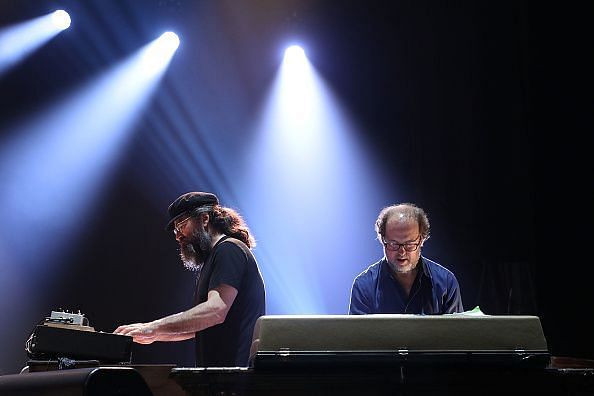
10 things that the rock band Phish has in common with WWE

Originated well over 100 years ago, few forms of entertainment have experienced long-term popularity like professional wrestling. Wrestling was notably one of the first popular forms of programming on American television, and it continues to air globally in a variety of forms, thanks to many different popular promotions in North America, Europe, Asia and elsewhere - the most prominent being WWE.

2019 is arguably another "golden age" for professional wrestling. While in the early 2000s, the only major North American-based company related to wrestling was undoubtedly WWE, these days there are plenty of prominent alternatives seen on national television, including All Elite Wrestling, Impact Wrestling, Ring Of Honor, Major League Wrestling, and Mexico's AAA; New Japan Pro-Wrestling has also major U.S. presence these days. Beyond that, there are wrestling-themed conventions taking place regularly all over the world, countless wrestling-centric podcasts, numerous wrestling-related apparel companies, wrestling-based documentaries showing on television -- thanks to the Viceland channel -- and full-time wrestling beat writers employed by the likes of Rolling Stone and Sports Illustrated.
Despite wrestling's widespread international popularity, it is still taboo in some circles to out yourself as a wrestling fan. Wrestling often carries a stigma within the mainstream media due to the actions of the field's less appealing aspects. This is absolutely comparable to the musical world, where a few "confused" fans may lead other people with similar interests to be the victims of unfair generalizations. In turn, Ozzy Osbourne, AC/DC and Judas Priest are among the high-profile rock artists who have been victimized by sensationalist journalists, all while maintaining huge long-term fanbases that truly "get it."
Elsewhere within the music and entertainment spaces, Phish has often been described as a "jam band," yet the Vermont-based act represents a lifestyle to millions of people. Formed over 35 years ago, the quartet of Trey Anastasio, Jon Fishman, Mike Gordon and Page McConnell are playing to capacity crowds at arenas and festivals all these years later. The group technically only has one gold-selling studio album (as certified by the United States' RIAA institution), yet few bands have sold as close to as many concert tickets -- or have had a wide cultural impact comparable to -- as Phish.
While professional wrestling and the band Phish may not seem to have much in common on a surface level, given further analysis, you can actually see similarities experienced among fans of the two. Here are ten of those similarities that have occurred to this writer... who, admittedly, has only attended one Phish concert in total.
#1 Improvisation
I hope I'm not ruining it for anyone for whom wrestling "is still real to," but professional wrestling has pre-determined outcomes. However, the talent involved with a match still need to do their fair share improvising from bell to bell. In other words, they may know how a match is going to start and end, but the way in which the talent takes the story from point A to point B is going to be different every time, even if the same people had wrestled previously with the same pre-decided outcome.
As a "jam band," Phish is no stranger to improvisation. The song "You Enjoy Myself" may be a little under 10 minutes on the Junta studio album, yet in concert, it often goes over 20 minutes in length. In fact, the October 31, 1995 recording of the song featured on the Live Phish Volume 14 album goes for more than 40 minutes. While the song has a determined introduction, chorus and overall structure, its improvised sections may include a vocal jam and references to earlier parts of the evening's performance.
Ultimately what this tells you is that both Phish and in-ring talent are both not only paying attention to audience reaction when performing, but are also aiming to keep things fresh. They do not repeat the same performance on a nightly basis, even if that would be easier and cost-effective. After all, artists are known to take their live performances seriously as a true art-form.